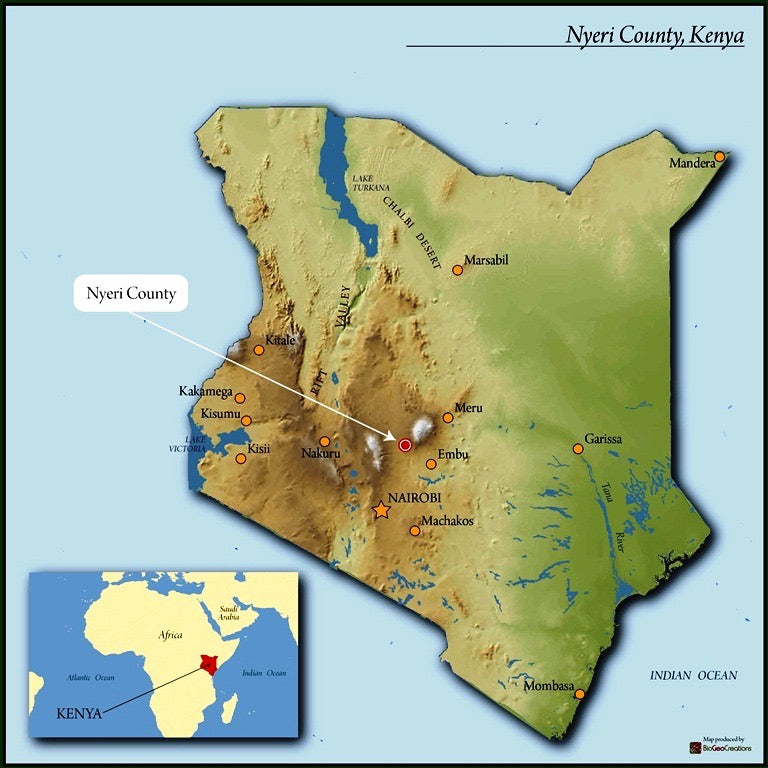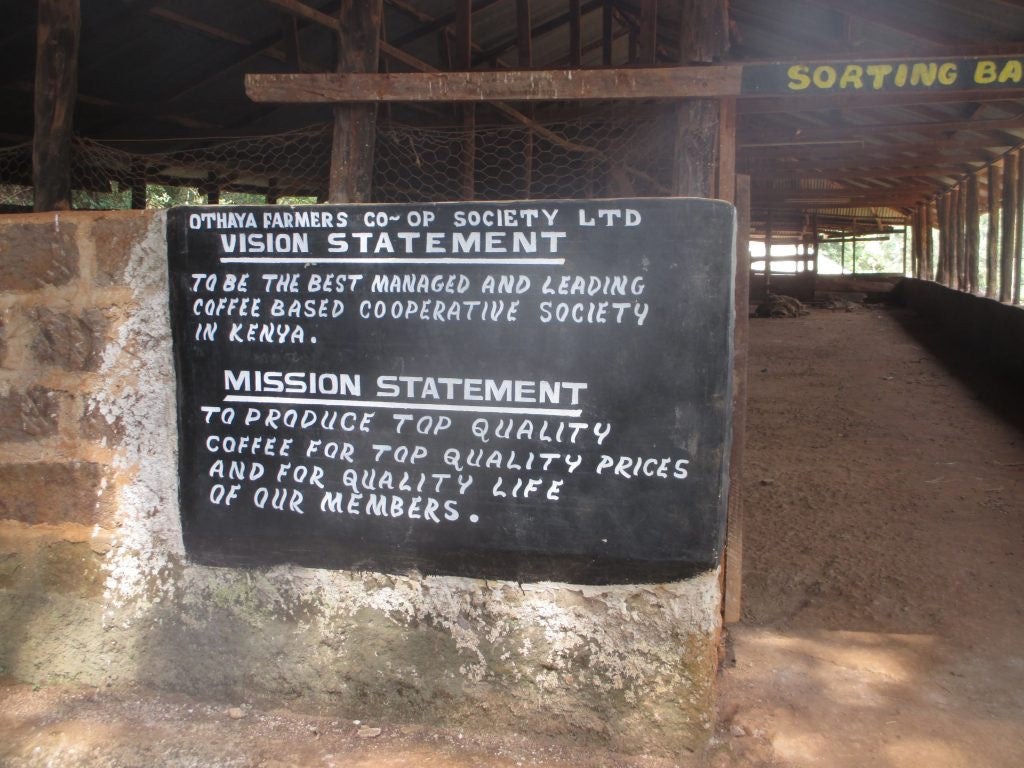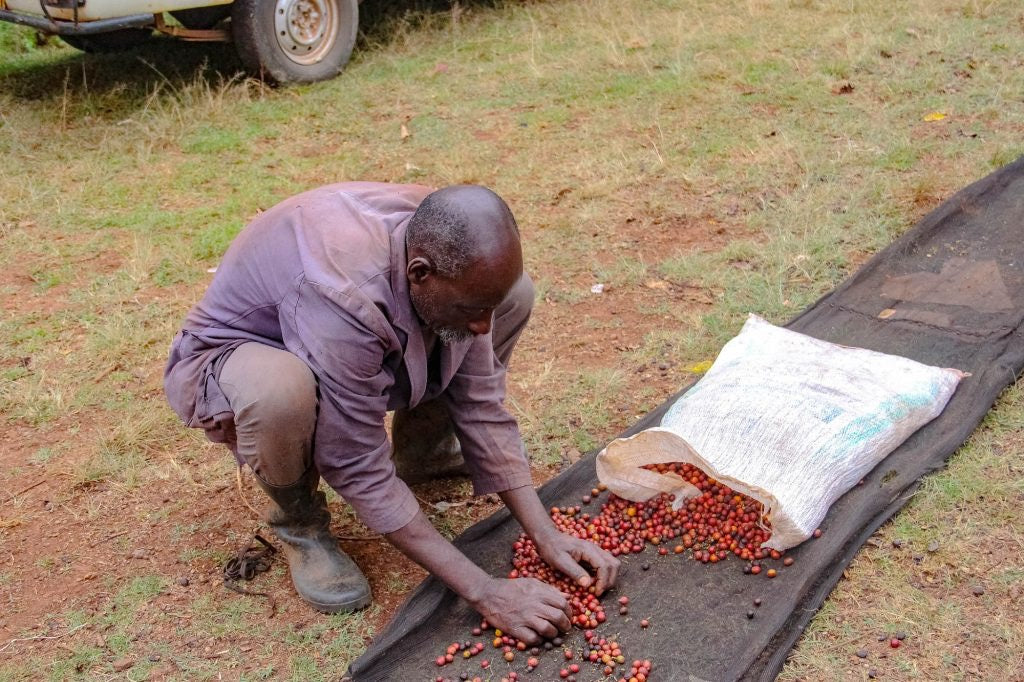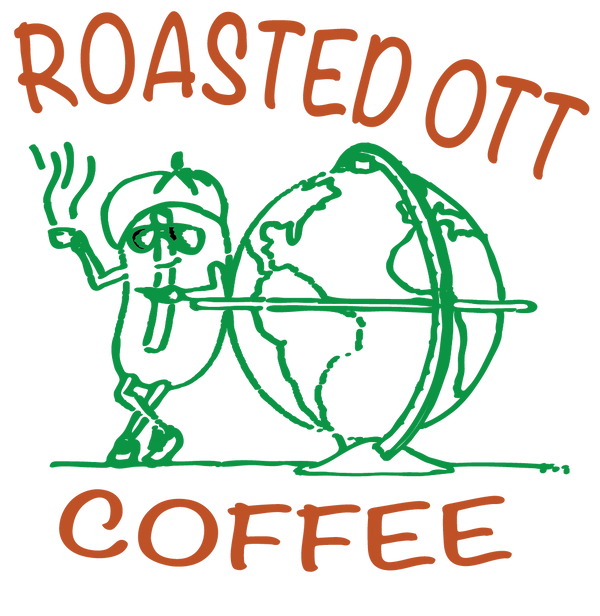KENYA FT-FLO OTHAYA ICHAMAMA AA
KENYA FT-FLO OTHAYA ICHAMAMA AA
Couldn't load pickup availability
LEMON CANDY, PLUM, PRALINE, VANILLA, FIG
Grower
781 coffee producers organized around the Ichamama Factory
Altitude
1741 masl
Variety
SL28, SL34, Ruiru 11, and Batian
Soil
Volcanic loam
Region
Othaya Town, Nyeri County, Central Province, Kenya
Process
Fully washed and dried on raised beds
Harvest
May-July | October-January
Certification
Fair Trade (FT FLO)
BACKGROUND DETAILS
This coffee is sourced from 781 family owned farms organized around the Ichamama Factory (wet mill) within the Nyeri growing region along the fertile foothills of the Aberdare mountain range. The Othaya Farmers Co-operative Society manages the Ichamama Factory. The cooperative processes coffee from farmers who generally have half acre plots averaging 250 coffee trees shaded with Bananas, Gravelia, and Macadamia trees.
Othaya Farmers Cooperative Society, the umbrella organization that includes Ichamama Factory, is one of Kenya’s larger societies, with 19 different factories and more than 14,000 farmer members across the southern Nyeri region. Othaya Farmer Cooperative Society is one of the key member societies of the Kenya Cooperative Coffee Exporters (KCCE) organization. KCCE is an historic organization of almost 4,000 individual cooperatives. The group was formed in 2009 with the express goal of managing marketing and exporting operations internally and cooperatively, as opposed to contractually with third parties. The economics of smallholder systems are consistently difficult everywhere in the world, and in Kenya in particular the number of individual margins sliced off an export price before payment reaches the actual farms is many, leaving only a small percentage to support coffee growth itself. Most often this dividend arrives many months after harvest. KCCE, by managing more of the value chain itself, can capture a greater margin on behalf of the farms.
Kenya is of course known for some of the most meticulous at-scale processing found anywhere in the world. Bright white parchment, nearly perfectly sorted by density and bulk conditioned at high elevations is the norm, and a matter of pride even for generations of Kenyan processing managers who prefer drinking Kenya’s tea, which is abundantly farmed in nearby Muranga county. Ample water supply in the central growing regions has historically allowed factories to wash, and wash, and soak, and wash their coffees again entirely with fresh, cold river water.








